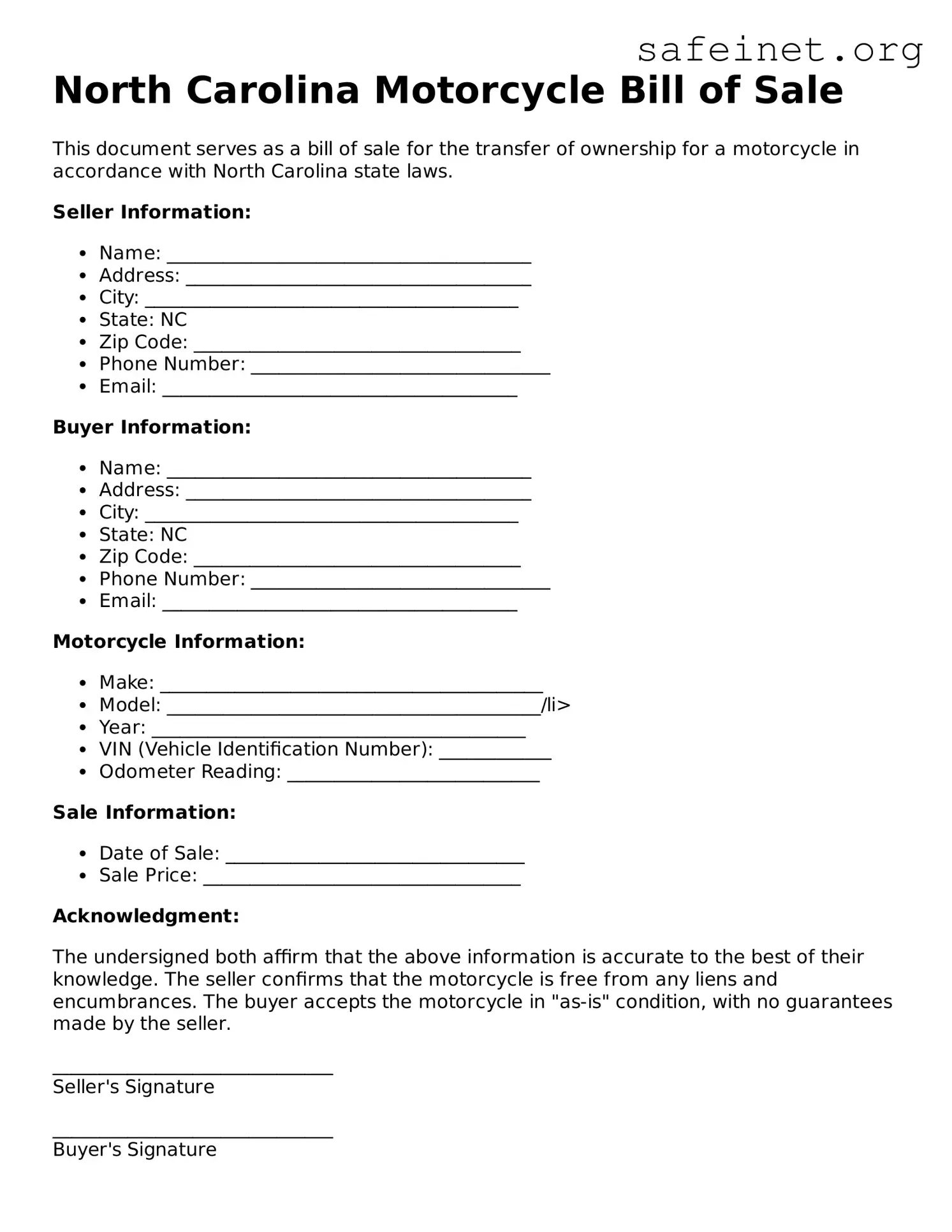What is a Motorcycle Bill of Sale in North Carolina?
A Motorcycle Bill of Sale is a legal document that records the details of the sale of a motorcycle. This form specifies important information such as the buyer and seller's names, the motorcycle's identification number (VIN), make, model, year, sale price, and date of sale. It serves as proof of the transaction and can be crucial for both the buyer and seller for registration and title transfer purposes.
Is a Motorcycle Bill of Sale required in North Carolina?
While a Motorcycle Bill of Sale is not required by law in North Carolina, it is highly recommended. This document protects both the seller and the buyer by providing a record of the transaction. Additionally, having a Bill of Sale can simplify the title transfer process when the buyer goes to register the motorcycle with the North Carolina Division of Motor Vehicles (DMV).
How do I fill out a Motorcycle Bill of Sale?
To fill out a Motorcycle Bill of Sale, start by entering the date of the sale at the top of the form. Next, provide the names and addresses of both the seller and buyer. Include the motorcycle's details such as make, model, year, and VIN. State the sale price and any terms or conditions agreed upon. Finally, both parties should sign and date the document to make it valid.
Can I create my own Motorcycle Bill of Sale?
Yes, you can create your own Motorcycle Bill of Sale as long as it includes all the necessary information. You can use templates that are easily available online or draft a document from scratch. Ensure you include all relevant details, as an incomplete form may lead to issues during title transfer at the DMV.
Do I need a notary for the Motorcycle Bill of Sale?
A notary is not typically required for a Motorcycle Bill of Sale in North Carolina. However, having the document notarized can add an extra layer of legitimacy and protection, especially if the sale involves a significant amount of money or if either party has concerns about the transaction.
What should I do with the Motorcycle Bill of Sale after the sale?
After the sale is complete, both the buyer and seller should keep a copy of the Motorcycle Bill of Sale for their records. The buyer will need to present it to the DMV, along with the title, to register the motorcycle in their name. The seller should retain their copy as proof of the sale in case any disputes arise later.
Can I use the Motorcycle Bill of Sale for other vehicles?
The Motorcycle Bill of Sale is specifically designed for motorcycle transactions. While the basic format may be similar, it’s best to use a Bill of Sale that is tailored for the specific type of vehicle you are selling, such as cars or trucks. This ensures all necessary details are appropriately addressed for that vehicle type.
What if the motorcycle has a lien on it?
If the motorcycle has a lien, it is important to resolve it before selling the vehicle. The seller should contact the lienholder to understand the steps required to have the lien released. The Bill of Sale should declare if there is a lien on the motorcycle, and the seller may need to involve the lienholder in the transaction process to ensure a smooth transfer of ownership.
